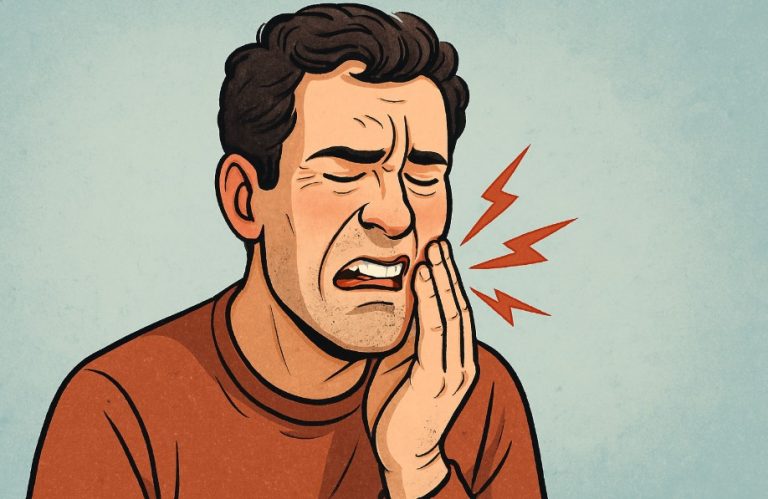Each year, as the Eurovision Song Contest unfolds with all its glamour, political undertones, and sometimes puzzling performances, one particular question continues to intrigue new and seasoned viewers alike: Why does the United Kingdom automatically qualify for the Grand Final? While dozens of countries battle it out in the semi-finals, the UK, alongside four other nations, consistently secures a place in the final show, regardless of previous performance or popularity.
Understanding this seemingly privileged position requires exploring Eurovision’s structure, the financial underpinnings of the European Broadcasting Union (EBU), and the UK’s long and complex history with the contest.
What Is the Eurovision Song Contest?

Image – Source
The Eurovision Song Contest is a music competition organised annually by the European Broadcasting Union (EBU). It began in 1956 with the aim of fostering unity through culture in post-war Europe, using television as the unifying medium.
Initially a small event with just seven countries, the contest has expanded to include over 40 nations from across Europe and even beyond, with countries like Australia now taking part.
The format of the competition involves national broadcasters selecting or voting for an artist and song to represent their country.
These performances are judged through a combined system of national juries and public televotes, culminating in a final vote that crowns the winner. The victorious country typically hosts the following year’s contest.
How Did the Contest’s Structure Evolve Over Time?
As the number of participating countries increased, the contest faced logistical challenges. To accommodate this growth, the semi-final format was introduced in 2004.
This change meant that most countries would have to compete for a spot in the Grand Final. However, certain countries, namely, France, Germany, Italy, Spain, and the United Kingdom, were granted automatic entry.
These five countries, known as the Big Five, continue to bypass the semi-finals each year, a rule that often causes confusion among viewers and controversy among participants.
Who Are the Big Five and Why Do They Matter?

Image – Source
The Big Five comprises the United Kingdom, France, Germany, Spain, and Italy. These nations hold a unique position in Eurovision due to their status as the largest financial contributors to the EBU.
Their broadcasters, such as the BBC in the UK and ARD in Germany, provide substantial funding, which helps cover the significant costs involved in producing the Eurovision Song Contest.
Originally coined as the Big Four in 1999 (with Italy rejoining the contest in 2011), this group was established to guarantee continued support and funding from key Western European nations.
Their guaranteed presence in the final is seen as a trade-off for the crucial financial backing they provide to the organisation of the contest.
What Is the Eurovision Allocation Draw?
To manage the large number of participants fairly, the EBU conducts an Allocation Draw to divide countries into two semi-finals.
This system is based on historic voting patterns; Countries with a tendency to vote for each other are deliberately separated to reduce predictable voting blocs.
In 2025, for instance, 15 countries were drawn to compete in the first semi-final held on Tuesday, May 13, and 16 countries will perform in the second semi-final on Thursday, May 15.
The draw not only determines which countries compete in which semi-final, but also which of the Big Five nations are assigned voting rights in each one.
Though these nations do not compete, they now appear in the semi-finals with full performances of their entries, allowing viewers a chance to preview their songs before the final. This is a relatively recent change from the previous rule, where only a brief snippet of their act was shown.
Why Doesn’t the UK Compete in the Eurovision Semi-Finals?

Image – Source
The UK does not compete in the semi-finals because of its Big Five status. Its automatic qualification is based not on merit or past victories but on the financial contributions made by its national broadcaster, the BBC, to the EBU.
According to Eurovision’s official website, “The Big Five are the participating broadcasters from France, Germany, Italy, Spain and the United Kingdom, the group of countries who, via their broadcasters, make the biggest financial contribution towards the organisation of the contest.”
This funding allows these countries to directly enter the Grand Final each year.
In 2023, for example, the UK also hosted the contest in Liverpool on behalf of Ukraine, due to the ongoing war with Russia. In 2025, Switzerland will earn automatic qualification as the host country following its win the previous year.
What Is the UK’s Role in the Eurovision Song Contest?
Despite inconsistent results in recent years, the UK has a rich Eurovision history. It has won the contest five times and hosted it nine times.
Yet in the last 25 years, British entries have frequently underperformed, often ending up near the bottom of the scoreboard, with some famously receiving “nul points”.
However, the BBC continues to treat Eurovision as an important cultural event. Its involvement ensures the UK remains a prominent player in the contest’s operations and coverage.
For 2025, the country is represented by Remember Monday, a female country-pop trio known for their tight harmonies and compelling stage presence. Their song, titled “What The Hell Just Happened?”, is one of the standout acts this year.
Though Remember Monday won’t compete in the semi-final for votes, they will perform in semi-final 2 on May 15, offering audiences a preview of what they’ll bring to the Grand Final.
What Financial Contributions Do the Big Five Make?

Image – Source
The EBU does not publish exact financial data, but it’s widely known that the Big Five countries contribute the majority of funding needed to stage Eurovision.
These funds cover production, broadcast infrastructure, venue preparation, and artist logistics.
Here’s a comparative overview of the Big Five:
| Country | Automatic Qualification? | Last Top 5 Finish | Eurovision Wins | Public Perception |
| United Kingdom | Yes | 2022 | 5 | Mixed |
| Germany | Yes | 2018 | 2 | Declining |
| France | Yes | 2021 | 5 | Positive |
| Spain | Yes | 2022 | 2 | Improving |
| Italy | Yes | 2021 | 3 | Strong |
These countries’ consistent funding ensures the continuity and international reach of Eurovision.
Are There Criticisms of the Automatic Qualification Rule?
Yes, the rule has faced ongoing scrutiny. Critics argue that it provides an unfair advantage, allowing these nations to skip a crucial part of the competition.
Others contend that not competing in the semi-finals puts Big Five entries at a disadvantage, as viewers don’t become familiar with their performances until the final, unlike the semi-final qualifiers, who gain early exposure.
In 2012, Turkey withdrew from Eurovision, citing the Big Five system as one reason for its dissatisfaction with the contest’s fairness.
To address some of these criticisms, the EBU now allows the Big Five to perform in full during the semi-finals, giving them a better chance to connect with the audience prior to the Grand Final.
How Does Automatic Qualification Affect the UK’s Performance?
While automatic qualification ensures the UK’s place in the final, it also means its entry lacks the momentum and fan support that semi-final qualifiers often build.
Exposure during the semi-finals allows other countries to fine-tune their performances and gather international support.
This absence of competitive build-up has been cited as one of the reasons behind the UK’s underperformance in recent years.
That said, the tide may be turning, especially with high-quality acts like Sam Ryder (2022) and Remember Monday (2025) helping to rebuild the UK’s reputation.
Will the Rules Change in the Future?

Image – Source
Though there’s ongoing debate about the fairness of automatic qualification, significant changes to the system are unlikely in the short term.
The financial model of Eurovision still heavily relies on the contributions of the Big Five, and removing their incentive could risk destabilising the contest’s funding.
However, continual refinements such as the expanded semi-final performances and enhanced voting transparency indicate the EBU is open to evolving the format where possible.
Conclusion
The United Kingdom’s automatic qualification for the Eurovision Grand Final is deeply tied to its financial role in supporting the contest.
While it spares the UK the competitive uncertainty of the semi-finals, it also brings unique challenges, including a lack of exposure and mixed public perception.
As the contest continues to modernise and respond to fan feedback, the UK’s Eurovision journey remains one to watch, balancing tradition, talent, and the ever-present pursuit of that elusive win.
ALSO READ:
FAQs
What does the EBU stand for?
The EBU is the European Broadcasting Union, which organises and oversees the Eurovision Song Contest.
Why does the UK automatically qualify for Eurovision?
Because the UK is part of the Big Five, the largest financial contributors to the EBU, it receives an automatic place in the Grand Final.
Do Big Five countries vote in the semi-finals?
Yes, each Big Five country is assigned one of the two semi-finals where they have voting rights, even though they don’t compete.
Can a Big Five country be disqualified?
While rare, any nation can be disqualified for breaching the contest’s rules, but financial contributors are generally committed to compliance.
Is it an advantage not to compete in the semi-finals?
Not necessarily, some argue it disadvantages Big Five nations, as their acts get less exposure.
How does the UK choose its Eurovision act?
The BBC selects the UK’s entry, either through an internal selection process or via public competitions.
Who represents the UK in Eurovision 2025?
The country-pop trio Remember Monday is representing the UK with their track “What The Hell Just Happened?”






